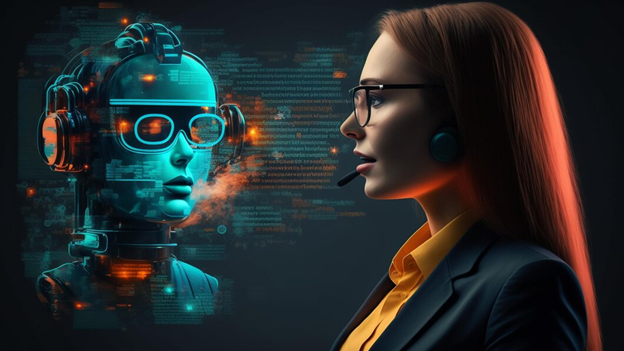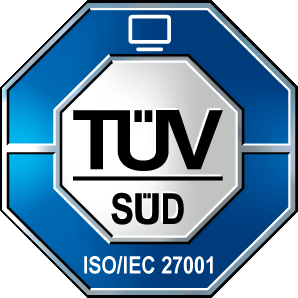Autonomous AI: The Leap from Traditional Intelligence
Artificial intelligence has revolutionized industries, starting with rule-based systems and advancing into machine learning and deep learning. Traditional AI focuses on static models requiring predefined rules or periodic retraining. Now, we are entering a new era: the age of Autonomous AI, in which systems not only learn but also adapt and improve independently in real time without constant human intervention.
Advances in large language models, reinforcement learning, and real-time decision-making have fueled the evolution of autonomous AI. These technologies enable systems to perform dynamic tasks, making them more versatile and less reliant on manual oversight. For example, whereas traditional AI is great at following instructions, autonomous AI excels in uncertain, evolving environments.
The Role of Generative AI in Autonomous Systems
Autonomous AI owes much of its progress to generative AI technologies like OpenAI’s GPT models and Google’s DeepMind advancements. These systems leverage generative techniques to process, synthesize, and even innovate based on large datasets.
Companies like OpenAI conducted experiments where autonomous systems can carry out chained tasks such as research, and then sum up the insights without having external prompts. Organizations such as Anthropic highlight reinforcement learning from human feedback to ensure ethical decisions in their agents. These innovations underlie how autonomous AI puts together memory, reasoning, and adaptability to create the kind of dynamic agents that transpire more than predetermined boundaries.
Knowing Agents in Autonomous AI
An AI agent is a software entity that can perceive its environment, reason through information, and take actions to achieve specific goals. What distinguishes these agents from traditional AI systems is their autonomy: agents can perform a series of tasks, adapt, and make decisions independently without continuous human supervision. They do this by combining large language models (LLMs), external tools like APIs, databases, and advanced reasoning frameworks.
For example, consider a personal assistant AI agent. It can analyze schedules, adjust for conflicts, and send reminders autonomously. This ability to function with dynamic inputs makes agents a cornerstone of autonomous AI systems.
How Agents Work

Agents work as an intermediary between a user and complex systems. They make use of memory, learned experiences, and tools to carry out tasks efficiently. Agents not only respond to commands; they break down problems, prioritize actions, and deliver results autonomously.
The core components that make agents autonomous are:
- Bias in Decision-Making: AI systems can also make biased decisions due to the flawed or incomplete data used, and thus call for careful validation and transparency.
- Transparency and Accountability: Understanding the decision-making process of an AI system, especially in sensitive areas, is important. Tools like explainable AI (XAI) can make these systems more understandable.
- Control vs. Autonomy: While autonomous systems reduce human oversight, they must be carefully controlled, especially in high-stakes environments like space exploration, to avoid harmful outcomes.
- Privacy Concerns: Autonomous AI agents handling sensitive data must implement strong security measures to prevent privacy breaches and comply with regulations like GDPR.
- Ethical Dilemmas: AI systems must navigate the ethical challenges, such as deciding who gets priority in critical situations, and they require embedding human values into the decision-making processes.
For example, customer service representatives are more than question answerers. They will predict the needs of their customers from previous interactions and give solutions ahead of time. Similarly, AI agents like OpenAI’s AutoGPT can string together tasks, such as research on the market, a report compilation, and even an email follow-up, all by themselves.
In this manner, autonomous agents not only do things; they decide what to do, set goals for themselves, plan how to do it, and update their actions based on what they get in return as feedback and results. Their power to continuously learn and improve makes them a versatile instrument for almost any application, from health care to e-commerce and personal management.
Future Applications
Transformative applications through autonomous AI and agents:
- Healthcare: Self-sufficient medical consultants scan and analyze patient records, draw conclusions from real-time health data, and modify treatment according to the latest research.
- Education: AI tutors create unique curricula for students by constantly changing with the students’ learning pace and interests
- Space Exploration: Autonomous systems of the kind used by NASA make critical decisions in real-time when human intervention is delayed, for example, in Mars missions.
- Creative Industries: AI agents create, curate, and refine art, music, and stories as dictated by user feedback, which democratizes creativity.
Applications of these autonomous systems can revolutionize exploration and human creativity.
Challenges and Ethical Issues
Autonomous AI brings unprecedented opportunities and challenges with it. This is a simplified breakdown of concerns:
- Bias in Decision-Making: AI systems can also make biased decisions due to the flawed or incomplete data used, and thus call for careful validation and transparency.
- Transparency and Accountability: Understanding the decision-making process of an AI system, especially in sensitive areas, is important. Tools like explainable AI (XAI) can make these systems more understandable.
- Control vs. Autonomy: While autonomous systems reduce human oversight, they must be carefully controlled, especially in high-stakes environments like space exploration, to avoid harmful outcomes.
- Privacy Concerns: Autonomous AI agents handling sensitive data must implement strong security measures to prevent privacy breaches and comply with regulations like GDPR.
- Ethical Dilemmas: AI systems must navigate the ethical challenges, such as deciding who gets priority in critical situations, and they require embedding human values into the decision-making processes.
Conclusion: The Future of AI
Autonomous AI will be the next change to alter the industries and our everyday lives. We can achieve that future in which people and machines collaborate to bring prosperity and happiness by meeting the challenges and embracing the guidelines on ethics.










